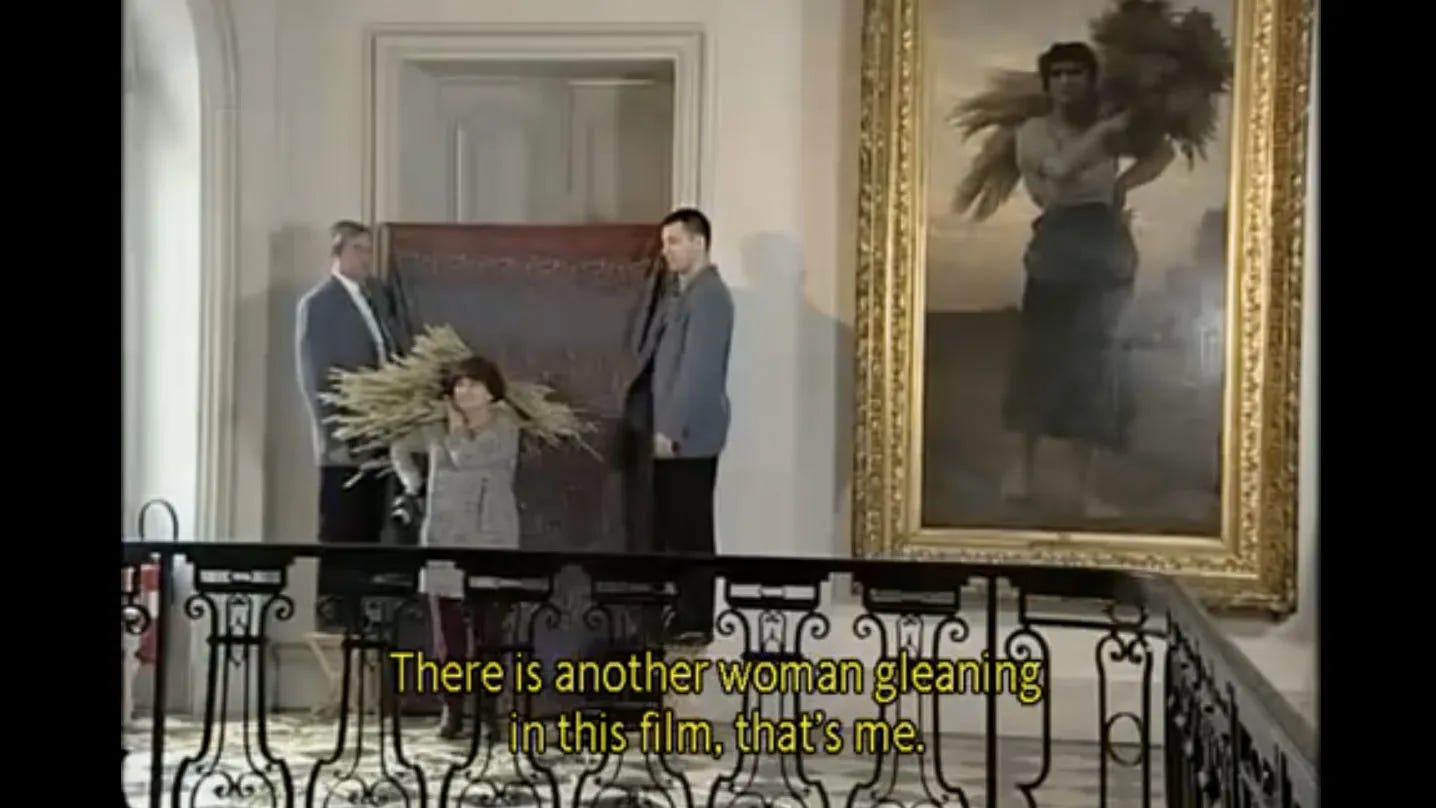Rural life has recently emerged as a central theme in fashion, art, and cinema, offering fresh perspectives on tradition, identity, and transformation. This resurgence was strikingly evident in Lessico Familiare’s installation La Bruma e I Fossi, presented at Dover Street Market Paris in December. The collection, created by Riccardo Scaburri, Alice Curti, Alberto Petillo, and their image director Victoria Genzini with Venetian studio Mare Karina, reimagines rural life through garments inspired by the practical needs and poetic rhythms of Italian farmers and Ermanno Olmi’s film, L’Albero Degli Zoccoli. With jackets featuring sleeves sewn shut—designed to evoke the resting posture of laborers—the installation captured the hazy beauty of the Pianura Padana.
Scaburri himself reflected on his connection to this rural heritage, saying: “L'Albero degli Zoccoli is a film shot in my small town and perhaps the only significant event that ever took place there. For years, I tried to distance myself from it (Milan, I love you), but over the past year, I’ve reconciled with it, especially because watching it again felt like immersing myself in my childhood in the countryside. For me, returning to rural life is essentially about returning to reality and to a simpler, almost nostalgic time.”
Lessico Familiare’s layered, introspective approach mirrors the themes of Luigi Ghirri’s Viaggio in Italia, a photographic meditation on Italian provincial life. Coincidentally, Ghirri’s work is the subject of an exhibition at Hôtel de Galliffet, the Italian Cultural Institute in Paris, through January 8, 2025.
This rural revival also resonates strongly in cinema, with two standout films leading the conversation. Alice Rohrwacher’s La Chimera was one of 2023’s breakout successes, blending the mystic and mundane in a tale set against the rolling hills of Umbria. Premiering at Cannes and distributed by Neon, the film follows Arthur, a tombarolo (grave-robber) played by Josh O’Connor, as he seeks Etruscan artifacts while navigating love, loss, and belonging. With its dreamy visuals and dark humor, La Chimera concluded a remarkable 25-week run at New York’s IFC Center last year, cementing its place as a cultural touchstone for rural narratives.
Another shining example of cinema’s fascination with rural life is Maura Delpero’s Vermiglio, Italy’s official pick for the upcoming Oscars. Winner of the Silver Lion at the Venice Film Festival and a Golden Globe nominee, the film is set in the high Italian Alps during the waning days of World War II. Through its meticulous portrayal of everyday life—prayer, labor, and the profound relationship between people and their mountainous surroundings—Vermiglio offers a deeply moving reflection on community, resilience, and finding one’s path amidst towering peaks.
Building on this momentum, Triennale Milano, in partnership with Fondation Cartier pour l’art contemporain, has launched its second Cinema Night series, exploring rural life through film—part of the public program for the exhibition Il Nostro Tempo. CinéFondationCartier, the series features iconic films that examine the poetic simplicity and existential challenges of rurality.
Running throughout January, Rural includes a carefully curated selection of films that celebrate the beauty, resilience, and complexity of rural existence:
9 & 17 January – La Vie Moderne (2008) by Raymond Depardon: A documentary capturing the struggles and quiet dignity of French farmers as they navigate a rapidly changing world.
10 & 21 January – Le Quattro Volte (2010) by Michelangelo Frammartino: A visually poetic film about the interconnected cycles of life in a Calabrian village.
11 & 19 January – Le Meraviglie (2014) by Alice Rohrwacher: A story of a family trying to maintain their rural traditions in Tuscany against the encroachment of outside forces.
12 & 22 January – Il Mondo Perduto (1954–1959) by Vittorio De Seta: Short films documenting the everyday lives of mid-20th-century Italian rural communities.
14 & 18 January – Les Glaneurs et la Glaneuse (2000) by Agnès Varda: A tender exploration of gleaning, sustainability, and creativity in rural France.
The series opens on January 8th with a panel discussion featuring filmmaker Michelangelo Frammartino, critic Barbara Grespi, and curator Luca Mosso. The panel will discuss the cinematic portrayal of rural life, its enduring resonance, and its relevance to contemporary audiences. A standout moment of the upcoming series is the homage to Vittorio De Seta, whose Il Mondo Perduto remains a definitive exploration of rural resilience and tradition.
As the cultural spotlight continues to shine on rural life, it’s clear that these themes—tradition, community, and the rituals that define them—are resonating more than ever. Whether through fashion collections that reinterpret rural attire, films that delve into the rhythms of countryside living, or exhibitions that explore the deep ties between land and people, the conversation around rurality is evolving in exciting ways. Triennale Milano's Rural Cinema Night offers a perfect opportunity to engage with this rich, often overlooked world. Don’t miss out on the chance to experience and reflect on these timeless traditions and the powerful stories they tell about the past, present, and future of rural life. We, here at Sali e Tabacchi Journal, are indeed curious about where this will take us in 2025.






